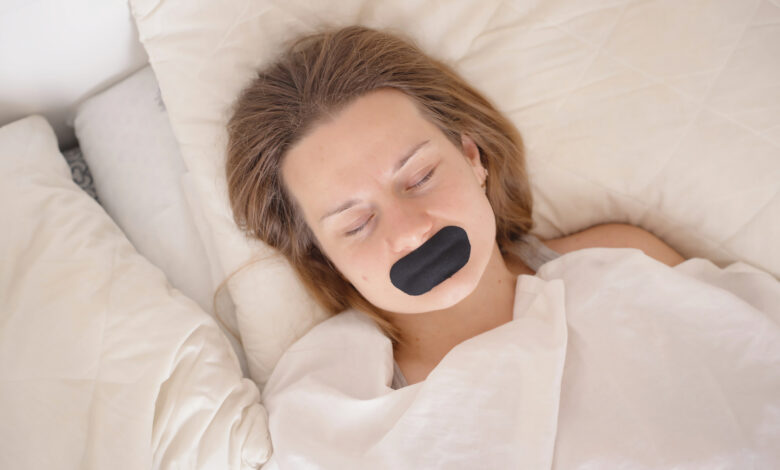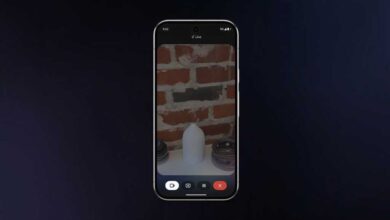Don’t tape your mouth before bed

Mouth taping as a health hack has been trending on social media, particularly on platforms like TikTok and wellness articles. The idea is to apply adhesive tape over your lips before going to bed to supposedly improve sleep quality, reduce snoring, enhance oral health, and even sculpt a stronger jawline. However, recent research from Western University in Canada advises against trying this practice without consulting a medical professional first.
The study, published in PLOS One, reviewed 10 previous studies on mouth taping dating back to 1999. The researchers found that while some studies suggested a slight improvement in sleep for individuals with mild obstructive apnea, there was no substantial evidence to support the use of mouth taping for reducing sleep-disordered breathing, snoring, or apnea. Additionally, there were concerns about the risk of asphyxiation associated with mouth taping, especially for individuals with respiratory issues like nasal obstruction or regurgitation.
The researchers emphasized that mouth taping should not be taken lightly and should only be considered in very specific cases, such as mild obstructive sleep apnea. It is crucial to consult a qualified medical professional before attempting any new sleep practices, especially those endorsed by social media influencers or celebrities.
If you are experiencing sleep-related issues such as snoring or dry mouth, it is essential to seek advice from a healthcare provider who can offer personalized recommendations and treatment options. While social media may offer quick fixes and trendy solutions, when it comes to your health, it is always best to rely on evidence-based practices and professional advice. title: The Impact of Social Media on Mental Health
Social media has become an integral part of modern society, with millions of people around the world using platforms such as Facebook, Instagram, and Twitter to connect with others, share their thoughts and experiences, and stay informed about current events. While social media has many benefits, it also has a dark side that can have a significant impact on mental health.
One of the main ways in which social media affects mental health is through the constant comparison to others. People often post carefully curated images and updates that show only the best aspects of their lives, leading others to feel inadequate or envious. This can lead to feelings of low self-esteem, depression, and anxiety as individuals strive to live up to these unrealistic standards.
Another issue with social media is the prevalence of cyberbullying. With the anonymity that the internet provides, people feel emboldened to say hurtful things to others that they would never say in person. This can have devastating effects on the mental health of those who are targeted, leading to feelings of worthlessness, isolation, and even thoughts of self-harm.
Furthermore, the constant exposure to negative news and images on social media can also take a toll on mental health. Studies have shown that the more time people spend on social media, the more likely they are to experience feelings of anxiety and depression. This is because the constant barrage of negative information can overwhelm the brain and lead to a sense of hopelessness about the state of the world.
On the other hand, social media can also have a positive impact on mental health. For many people, social media provides a sense of community and support that they may not have in their everyday lives. Through online groups and forums, individuals can connect with others who share similar experiences and struggles, providing a sense of validation and understanding.
Additionally, social media can be a valuable tool for raising awareness about mental health issues and providing resources for those in need. Many organizations and individuals use social media to spread messages of hope and encouragement, as well as to connect people with mental health professionals and support services.
In conclusion, while social media has its drawbacks when it comes to mental health, it also has the potential to be a force for good. By being mindful of how we use social media and taking steps to limit our exposure to negative content, we can harness the positive aspects of these platforms to improve our mental well-being. By fostering a sense of community, support, and awareness, social media can be a powerful tool in the fight against mental health stigma and isolation.





